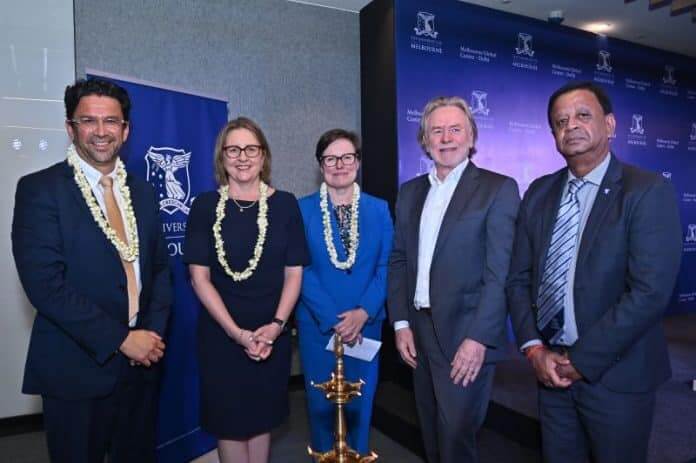Victoria’s Premier Jacinta Allan has unveiled a series of initiatives to reinforce Victoria’s educational and economic ties with India. These initiatives aim to position the state as a global education hub while addressing federal caps on international student placements.
The measures, announced during Allan’s week-long visit to Delhi, include cash incentives for Victorian universities and TAFEs to expand internationally and a commitment to reserve regional work visas for international graduates.
Reserved regional work visas for international students
Ms Allan announced that Victoria would reserve 25% of its Skilled Work Regional Visa (subclass 491) slots for international students who graduate from local universities and TAFEs. This move would provide an estimated 500 graduates with a direct pathway to work in regional Victoria, grappling with skill shortages in industries like advanced manufacturing, hospitality, social services, and tourism.
The visa program mandates that successful applicants live and work in regional communities for three years, after which they can apply for permanent residency. Ms Allan highlighted that international students are critical to Victoria’s vibrant, multicultural community, adding, “We are ensuring that when students complete their studies, they have every opportunity to live and work in regional Victoria, where their skills are most needed.”
This visa initiative is part of the state’s broader effort to address workforce shortages in regional areas and divert pressure away from Melbourne’s urban centers. In the last financial year, 365 international students applied for the subclass 491 visa, a number the government hopes to increase.
Premier Jacinta Allan underscored Victoria’s focus on education, technology, and cultural exchange during her visit to Delhi. She addressed the International Education and Skills Summit, one of the largest education industry events, reiterating Victoria’s commitment to being Australia’s top destination for international students, particularly from India. She invited Indian educational institutions to explore opportunities in Victoria, encouraging a deeper exchange of talent and resources.
The Victorian government is actively marketing the state’s education sector in India, a country that has become Victoria’s largest source of international students. Premier’s delegation visited schools like Bharatiya Vidya Bhavan, a prominent Indian educational trust, and she directly invited Indian students and faculty to explore the opportunities in Victoria.
View this post on Instagram
Ms Allan also visited Delhi’s historic sites, including the Qutb Minar, as part of her cultural engagement, reinforcing the shared heritage between India and Victoria.
Offshore Education Fund to circumvent federal caps
Victoria’s robust international student strategy directly responds to federal caps on student placements, which threaten to limit the economic growth generated by this vital sector. Victoria accounts for 30% of Australia’s total international student enrolments, and the state government has expressed concern that limiting student numbers could undermine future growth.
Delivering the Australia India Institute’s annual India Oration during her visit to India, Jacinta Allan announced a $5m “Say yes to international students” fund in opposition to these proposed caps.
The @AIinstitute Annual Oration is one of the most celebrated occasions in our calendar. Victorian Premier @JacintaAllanMP was a most fitting leader to undertake this honour in 2024. The connection between
& Victoria is deep & profound, a relationship built on trade, & trust. pic.twitter.com/Tpfpk00qYM
— Philip Green OAM (@AusHCIndia) September 17, 2024
“We say no to the federal government’s caps. Our new fund is going to help our unis and TAFEs find innovative ways to challenge them, and make our offering to international students even stronger,” she said.
“We say yes to international students because they boost our economy and our global reputation, they support our small businesses, and they keep our multicultural state connected with the world,” added Ms Allan.
The scheme aims to expand international education opportunities by allowing Victorian universities and TAFEs to offer courses to international students through offshore campuses or partnerships with education providers abroad.
The benefits of such a scheme might include increased global engagement for Victorian institutions, stronger educational ties with international partners, and enhanced opportunities for international students without overburdening local resources.
To further strengthen Victoria’s international education sector, the state government is pushing for the Albanese government to reconsider its caps. Ms Allan’s efforts highlight the importance of adapting to global challenges while ensuring that Victoria remains an attractive destination for students worldwide.
Melbourne Global Centre in Delhi
Earlier during her visit, Jacinta Allan officially opened the University of Melbourne’s first-ever Melbourne Global Centre in Delhi, marking a significant milestone in the university’s relationship with India.
The centre is strategically located in Delhi’s central government district, close to international agencies and the Australian High Commission, positioning itself as a hub for educational exchange, research collaboration, and cultural engagement.
Professor Michael Wesley, Deputy Vice-Chancellor of Global, Culture, and Engagement at the University of Melbourne, said the Melbourne Global Centre reflects the university’s long-term commitment to fostering deeper ties with India.
“Our Centre in Delhi is a significant step in our longstanding commitment to educational collaboration between India and our University,” said Mr Wesley.
Read More: Australia includes India in the Work and Holiday Visa program




